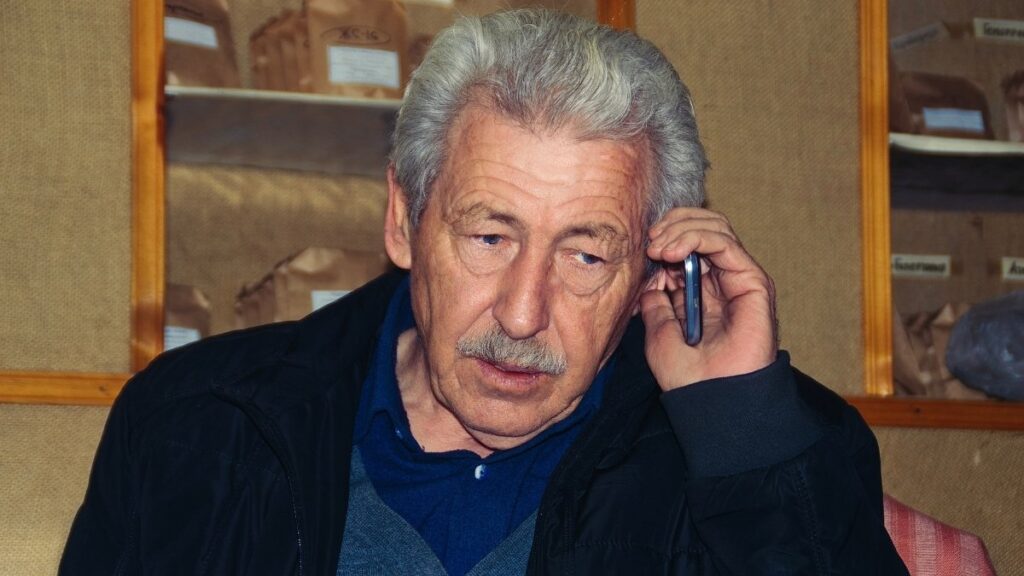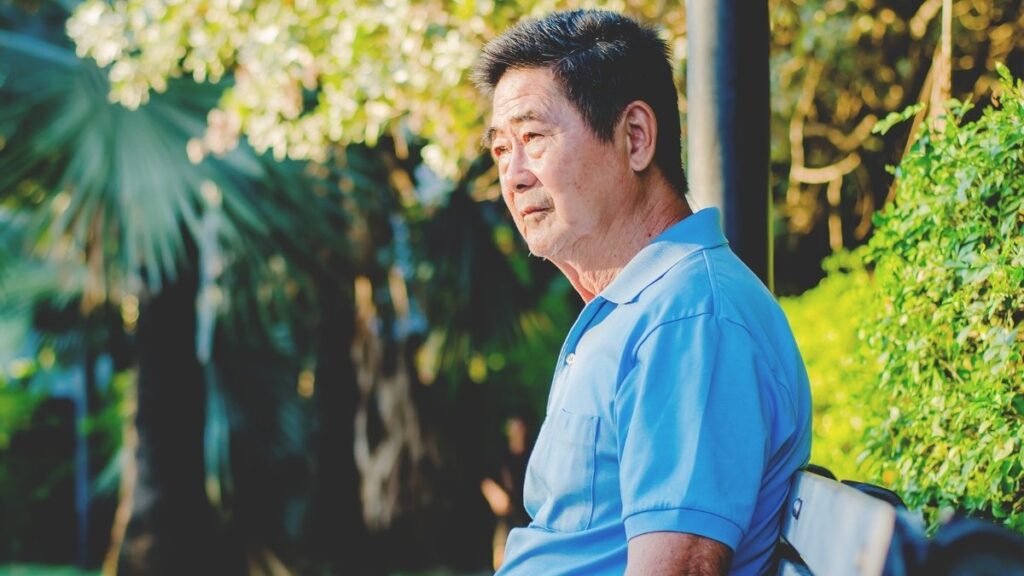Avoid Centenarian Longevity Tips, Leading Scientist Warns — These 10 Evidence-Based Strategies Could Help You Live 14 Years Longer
Centenarians swear by everything from daily whiskey shots to eating bacon for breakfast, but longevity scientist Richard Faragher says you shouldn’t listen to them.
The internet is flooded with conflicting advice about living longer, creating dangerous misconceptions about what actually works for healthy aging. While wellness influencers promote expensive supplements and extreme diets, real longevity scientist recommendations tell a different story.
Research reveals that evidence-based longevity advice focusing on simple lifestyle changes can add up to 14 years to your life expectancy. These aren’t trendy biohacks or celebrity secrets—they’re longevity tips science-backed by decades of rigorous research and proven to extend both lifespan and healthspan significantly.
Why You Shouldn’t Follow 100-Year-Old’s Advice
You’ve probably heard them. Those feel-good news stories about 100-year-olds who credit their long life to smoking cigars, drinking whiskey, or eating bacon daily. These stories make great headlines. But they’re terrible advice.

Dr. Richard Faragher, a longevity scientist, has spent years studying what actually makes people live longer. His research shows something surprising. The advice from centenarians is often wrong.
Here’s the problem. When you only study people who lived to 100, you miss everyone who died younger doing the same things. This is called survivorship bias. It’s like asking only lottery winners for financial advice.
Think about it this way. Maybe 1,000 people smoked cigars their whole lives. One lived to 100. The other 999 died much younger from smoking-related diseases. But we only hear from the one who survived.
The science tells a different story. Genetics only account for 20% of how long you live. That means 80% comes from your lifestyle choices. Your daily habits matter more than your family tree.
The 11 Evidence-Based Longevity Strategies
1. Get 150 Minutes of Exercise Weekly
Your body was built to move. When you don’t use it, everything breaks down faster.

Harvard researchers followed over 100,000 people for 30 years. They found that people who exercised regularly had a 30% lower risk of dying early. That’s huge. Johns Hopkins studies show similar results across different age groups.
You don’t need to run marathons. Walking counts. Swimming works. Lifting light weights helps too. The key is consistency.
Here’s what 150 minutes looks like in real life:
- Walk for 30 minutes, five days a week
- Swim for 25 minutes, six days a week
- Do strength training twice a week plus cardio three times
Your heart gets stronger. Your muscles stay functional. Your bones keep their density. Your brain gets better blood flow. Exercise fights inflammation throughout your body.
The research is clear. People who sit all day age faster. Their cells actually look older under a microscope. But when you move regularly, you reverse this damage.
Start small if you’re not active now. A 10-minute walk after dinner beats doing nothing. Add five minutes each week. Your future self will thank you.
The best exercise is the one you’ll actually do. Find something you enjoy. Make it a habit. Your cardiovascular system will protect you for decades.
2. Eat 5-9 Servings of Fruits and Vegetables Daily
Plants contain compounds that fight aging at the cellular level. They’re like medicine you can eat.

Mediterranean diet studies show people who eat lots of fruits and vegetables live longer. Blue Zones research found the same pattern. Areas with the most centenarians eat plants with every meal.
The numbers don’t lie. People who eat 5-9 servings of fruits and vegetables daily have a 12-15% lower risk of dying early. That protection comes from antioxidants and polyphenols found in colorful plants.
Here’s what a serving looks like:
- One medium apple or banana
- Half cup of berries
- One cup of leafy greens
- Half cup of cooked vegetables
Different colors provide different benefits. Red tomatoes have lycopene. Orange carrots contain beta-carotene. Dark leafy greens pack folate and vitamin K. Berries burst with anthocyanins.
These compounds reduce inflammation. They protect your DNA from damage. They help your immune system work better. They even slow down how fast your cells age.
You don’t need exotic superfoods. Regular fruits and vegetables work great. Frozen counts too. Canned is fine if there’s no added sugar.
The goal is variety and consistency. Try to eat something from each color group daily. Red, orange, yellow, green, blue, purple. Each color fights aging differently.
Your body repairs itself using nutrients from plants. Give it the raw materials it needs. The plant-based longevity diet isn’t a fad. It’s what humans evolved eating.
3. Never Smoke (Or Quit Now)
Smoking is the worst thing you can do for longevity. Period.
A 50-year British study tracked doctors who smoked versus those who didn’t. The results shocked everyone. Smoking cut life expectancy by 10 years on average. Some lost even more.

But here’s the hopeful part. Quitting works at any age. People who quit at 30 gained back almost all 10 years. Those who quit at 50 still gained 6 years. Even quitting at 60 added 3 years.
Your body starts healing immediately when you stop:
- Within 20 minutes: Heart rate and blood pressure drop
- Within 12 hours: Carbon monoxide levels normalize
- Within 2 weeks: Circulation improves
- Within 1 year: Heart disease risk cuts in half
Smoking damages everything. Your lungs, heart, blood vessels, and DNA. It accelerates aging in every cell. Former smokers’ cells actually start looking younger again after they quit.
The nicotine addiction is real. But millions of people have beaten it. Nicotine patches help. Prescription medications work. Support groups provide encouragement. Some people need multiple attempts. That’s normal.
Don’t feel guilty about past smoking. Focus on today. Every smoke-free day helps your body heal. The sooner you quit, the more years you gain back.
If you never smoked, don’t start. If you smoke now, quitting is the single best thing you can do for longevity. The smoking longevity impact research is overwhelming. There’s no safe level of smoking.
4. Maintain Quality Sleep (7-8 Hours)
Sleep isn’t optional. It’s when your body repairs damage from the day.

The American College of Cardiology studied sleep habits in 172,000 people. They found that men with good sleep habits lived 4.7 years longer. Women gained 2.4 years. That’s just from sleeping better.
Quality sleep means more than just hours in bed. You need:
- 7-8 hours of actual sleep
- Regular bedtime and wake time
- No sleep medications if possible
- Waking up feeling rested
- Staying asleep without frequent interruptions
During deep sleep, your brain clears out toxic proteins. Your immune system recharges. Growth hormone repairs your muscles. Your metabolism resets for the next day.
Poor sleep accelerates aging. It increases inflammation. It weakens your immune system. It makes you gain weight. It raises your risk of heart disease and diabetes.
Here’s how to improve your sleep:
- Keep your bedroom cool and dark
- No screens for an hour before bed
- Exercise during the day, not at night
- Avoid caffeine after 2 PM
- Create a relaxing bedtime routine
Sleep medications might help short-term. But they often reduce sleep quality over time. Your goal is natural, restorative sleep without pills.
The sleep longevity connection is stronger than most people realize. You can’t out-exercise or out-diet chronic sleep deprivation. Make sleep a priority. Your entire body depends on those nightly repair cycles.
5. Maintain Healthy Weight (BMI 18.5-24.9)
Extra weight accelerates aging. It stresses every system in your body.

Johns Hopkins followed people for 8 years. They found that maintaining a healthy weight was one of the strongest predictors of longevity. People with BMIs between 18.5 and 24.9 lived longest.
The problem isn’t just total weight. It’s where you carry fat. Visceral fat around your organs is particularly dangerous. It produces inflammatory chemicals that damage your arteries, liver, and pancreas.
You can measure visceral fat by checking your waist size:
- Men: Keep waist under 40 inches
- Women: Keep waist under 35 inches
Losing visceral fat requires both diet and exercise. You can’t spot-reduce belly fat with crunches. You need to lose overall body fat through a calorie deficit.
The best approach combines:
- Eating fewer calories than you burn
- Strength training to preserve muscle
- Cardio to burn calories
- High-protein foods to stay full
Crash diets don’t work long-term. Aim to lose 1-2 pounds per week. Focus on building sustainable habits rather than quick fixes.
Being underweight is also risky. BMIs below 18.5 are linked to higher death rates. You need adequate muscle mass and fat stores for optimal health.
The healthy weight longevity connection is clear across all populations. Extra weight makes everything harder for your body. Maintaining a normal BMI gives you the best chance at a long, healthy life.
6. Build Strong Social Connections
Loneliness kills. It’s not dramatic language. It’s scientific fact.

The Harvard Study of Adult Development has followed people for over 80 years. Their main finding? Strong relationships are the biggest predictor of happiness and longevity.
Social isolation increases your death risk by 26%. That’s equivalent to smoking half a pack of cigarettes daily. Lonely people have higher inflammation, weaker immune systems, and more depression.
Quality matters more than quantity. You don’t need hundreds of friends. You need a few people you can rely on. People who know the real you. People you see regularly.
Strong social connections provide:
- Emotional support during tough times
- Someone to share good news with
- Accountability for healthy habits
- A sense of belonging and purpose
Here’s how to build better relationships:
- Call or text friends regularly
- Join clubs or groups with shared interests
- Volunteer for causes you care about
- Be the one who organizes get-togethers
- Show up when others need help
Technology can help or hurt. Video calls with distant family count as social connection. But scrolling social media doesn’t. In-person contact is still best when possible.
Marriage provides longevity benefits for most people. Married people live longer than single, divorced, or widowed people. But the relationship quality matters more than the legal status.
The social connections longevity research spans decades and cultures. Humans are social animals. We need each other to thrive. Invest in your relationships like you invest in your health. They’re inseparable.
7. Manage Stress Effectively
Chronic stress ages you faster than almost anything else. It’s like hitting the fast-forward button on aging.

When you’re stressed, your body releases cortisol. Short bursts are normal and healthy. But chronic high cortisol damages everything. It weakens your immune system, raises blood pressure, and increases inflammation.
Studies show that people under chronic stress have shorter telomeres. These are protective caps on your chromosomes. Shorter telomeres mean faster cellular aging.
Effective stress management techniques include:
- Meditation or mindfulness practice
- Regular exercise
- Deep breathing exercises
- Yoga or tai chi
- Spending time in nature
- Getting enough sleep
- Talking to friends or therapists
The key is finding what works for you. Some people love meditation. Others prefer hiking. The technique doesn’t matter as much as consistency.
Even 10 minutes daily makes a difference. Apps can guide you through meditation. YouTube has free yoga videos. Parks provide free nature therapy.
Stress is unavoidable. But chronic stress is a choice. You can learn to respond differently to life’s challenges. Your nervous system needs regular breaks from fight-or-flight mode.
Signs you need better stress management:
- Trouble sleeping despite being tired
- Getting sick frequently
- Feeling overwhelmed most days
- Relying on alcohol or drugs to relax
The stress management longevity research is clear. People who handle stress well live longer, healthier lives. Learn techniques now, before you desperately need them.
8. Find Your Purpose
Having a reason to get up each morning adds years to your life.

Japanese researchers studied ikigai, which means “reason for being.” People with a strong sense of purpose had a 13% lower risk of dying over 13 years. That’s independent of age, health status, and other factors.
Purpose doesn’t have to be grand or world-changing. It can be:
- Raising your children or grandchildren
- Volunteering at a local charity
- Mentoring young people in your field
- Creating art, music, or writing
- Caring for pets or gardens
- Being there for friends and family
The common thread is feeling needed and useful. When you have something meaningful to do, you take better care of yourself. You have reasons to stay healthy.
People with purpose tend to:
- Exercise more regularly
- Eat better food
- Sleep more consistently
- Handle stress better
- Build stronger relationships
Purpose also provides resilience during tough times. When life gets hard, having a “why” helps you push through difficulties.
Ways to find your purpose:
- Think about what matters most to you
- Consider how your skills could help others
- Try volunteering in different areas
- Reflect on what gives you energy
- Ask friends what they see as your strengths
Purpose can change over time. What drove you at 30 might be different at 60. That’s normal. The key is always having something that makes your life feel meaningful.
The purpose longevity research shows this isn’t just feel-good advice. Having a reason to live literally extends your life.
9. Stay Hydrated
Your body is mostly water. When you don’t drink enough, everything works harder.

A study of 11,000 adults found that people who stayed well-hydrated had fewer chronic diseases and lived longer. Proper hydration helps every system in your body function better.
Water helps:
- Transport nutrients to your cells
- Remove waste from your body
- Regulate your body temperature
- Lubricate your joints
- Protect your organs and tissues
Dehydration makes you feel tired, gives you headaches, and makes it harder to think clearly. Chronic mild dehydration stresses your kidneys and cardiovascular system.
How much water you need depends on:
- Your size and activity level
- The climate where you live
- Your overall health
- Medications you take
A general rule is 8 cups (64 ounces) daily for most adults. But active people need more. Hot climates require more. Some medications increase your fluid needs.
Signs you’re drinking enough water:
- Your urine is pale yellow
- You rarely feel thirsty
- You have energy throughout the day
- Your skin feels elastic when pinched
Don’t wait until you feel thirsty. By then, you’re already mildly dehydrated. Sip water throughout the day rather than chugging large amounts.
The hydration longevity benefits come from supporting all your body’s processes. It’s simple but powerful preventive medicine.
10. Get Regular Health Screenings
Catching problems early can add years to your life. Many serious diseases are treatable when found soon enough.

Preventive healthcare focuses on finding issues before they cause symptoms. By the time you feel sick, diseases are often advanced and harder to treat.
Key screenings by age:
Ages 20-39:
- Blood pressure every 2 years
- Cholesterol every 5 years
- Diabetes screening if at risk
- Cancer screenings based on family history
Ages 40-64:
- Mammograms annually (women)
- Colonoscopy every 10 years
- Prostate screening (men)
- Bone density for women
- Heart disease screening
Ages 65+:
- All of the above more frequently
- Cognitive function assessments
- Fall risk evaluations
- Vision and hearing tests
Don’t skip screenings because you feel fine. High blood pressure has no symptoms. Early-stage cancers rarely cause pain. Diabetes can damage your body for years before you notice.
The cost of prevention is always less than the cost of treatment. Most insurance covers recommended screenings. Community health centers offer low-cost options.
Work with your doctor to create a screening schedule based on your age, family history, and risk factors. Some people need more frequent monitoring.
The preventive healthcare longevity connection is straightforward. Finding problems early gives you more treatment options and better outcomes.
The Cumulative Effect: Why All 11 Matter
These 11 strategies work best together. Each one supports the others.
When you exercise regularly, you sleep better. Good sleep helps you manage stress. Lower stress makes it easier to eat well. Healthy eating gives you energy to be social. Strong relationships motivate you to take care of yourself.
It’s like a positive feedback loop. Each healthy habit makes the next one easier to maintain.
The 2008 PLOS Medicine study found that people who followed multiple healthy lifestyle factors lived 14 years longer than those who followed none. This wasn’t 14 years of being sick in a hospital. It was 14 additional years of healthy, active life.
Here’s what combining strategies looks like:
- Your morning walk (exercise) helps you sleep better at night
- Good sleep makes you less likely to stress-eat junk food
- Eating well gives you energy for social activities
- Social connections provide accountability for healthy habits
- Having purpose motivates you to stick with all of them
You don’t need to master all 11 at once. That’s overwhelming and usually backfires. Start with one or two that feel most achievable right now.
Maybe you begin with a 15-minute daily walk and drinking more water. Once those become automatic, add another strategy. Build slowly and sustainably.
The synergistic effects compound over time. A 40-year-old who starts following these principles will see bigger benefits than someone who waits until 60. But starting at any age helps.
Your body is constantly repairing and rebuilding itself. Give it the right conditions, and it will serve you well for decades. The evidence-based longevity advice isn’t complicated. It just requires consistency.
The best time to start was 20 years ago. The second-best time is right now. Your future self is counting on the choices you make today.
Conclusion
Living longer isn’t about winning the genetic lottery. It’s about making smart choices every day.
These 11 science-backed strategies can add up to 14 years to your life. That’s not just extra time. It’s extra healthy time with the people you love.
You don’t need perfect habits. You need consistent ones. Small improvements compound over years into major health benefits.
The how to live longer research is clear. Move your body. Eat plants. Don’t smoke. Sleep well. Connect with others. Manage stress. Stay hydrated. Get check-ups. Find purpose. These aren’t revolutionary ideas. They’re proven practices that work.
Start with one habit this week and build from there. Your longevity depends on what you do today, not what you plan to do someday.








